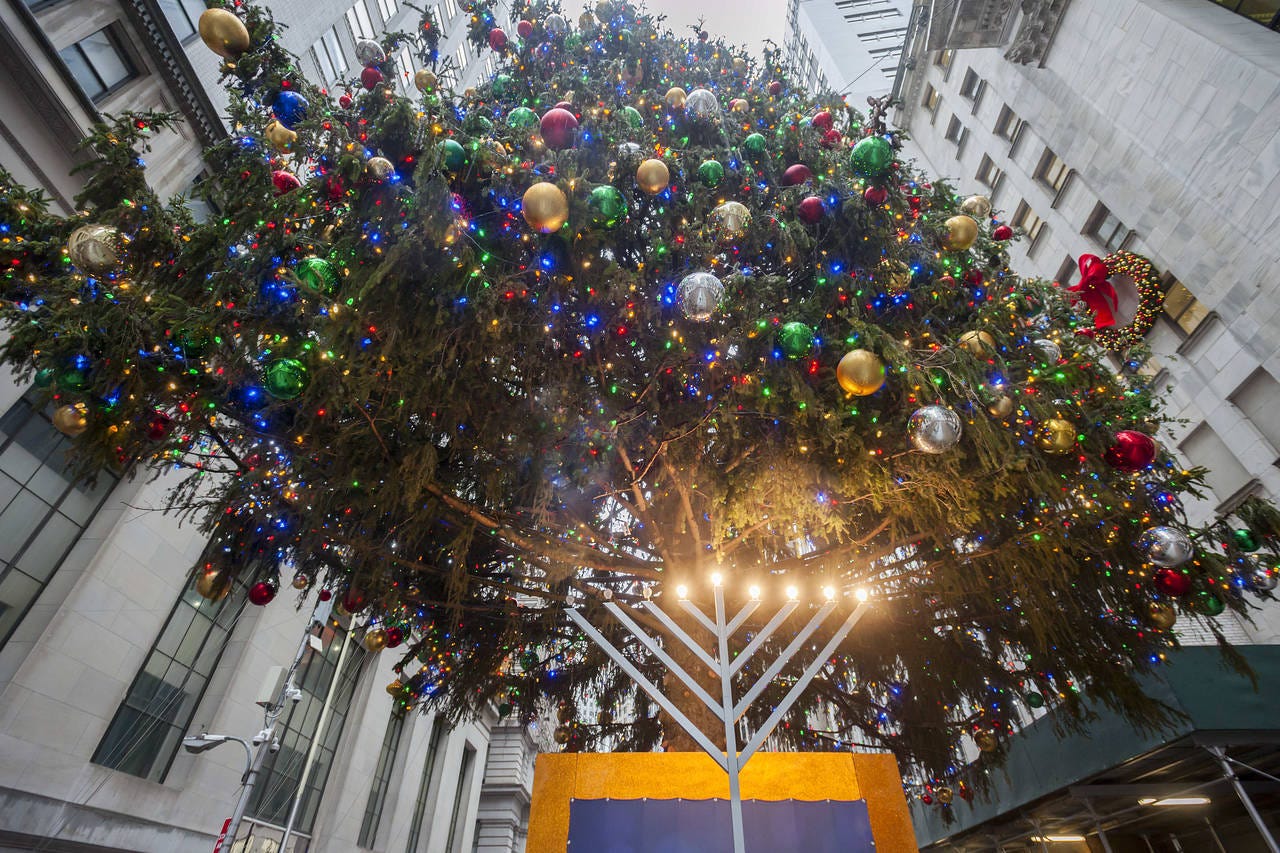“Merry Christmas” vs. “Happy Holidays”
The endless Yuletide ... er, Christmas-season ... er, December debate
Today in The Atlantic, the estimable Elizabeth Bruenig, with whom I usually agree, has a piece called “The Christian Case for ‘Happy Holidays’: Well wishes should be addressed in the broadest possible terms.” She writes:
[T]here are plenty of reasons even devoutly conservative Christians should consider wishing others “Happy holidays” this season. This isn’t to say that using “Merry Christmas” is a bad thing to do—it isn’t, especially when speaking with coreligionists or on Christmas Day itself. And though I doubt that most people are so sensitive as to take offense at a well-intended salutation, “Happy holidays” still has a great deal to recommend it.
To begin with, there are, in fact, other holidays at the end of the year—not just of other faiths but also within Christianity. The word holiday ought not be confined in meaning to bank holidays—why should financial institutions or governments dictate what constitutes a true holiday?—but rather to the original sense of holy days. Christmas is certainly an important holy day, but so are the days of Advent, the prayerful, anticipatory weeks leading up to the grand finale. And so, too, is the Feast of the Immaculate Conception—a major event in the Catholic calendar and a “holy day of obligation,” meaning that Catholics must report to mass to observe it. (In Nicaragua, Spain, the Philippines, and many other countries, the Feast of the Immaculate Conception is a national holiday, in the secular sense.) For that reason, “Happy holidays,” being plural and inclusive, captures a genuinely pious—Christian—sentiment.
These holidays are, admittedly, quite High Church. But there are other, more ecumenical Christian reasons for keeping “Happy holidays” on hand. Take Hanukkah, which this year begins on Christmas Day: The celebration of God’s miracle of lights originates in the Books of the Maccabees, which are considered canonical by the majority of Christians, and Jesus himself celebrates the occasion in the Book of John. This is perhaps why certain Christians do observe the festival, and why Orthodox Christians use menorahs in their churches. Again, considering the multiplicity of conservative Christian-friendly holidays at the end of the year, Christians have no reason to eschew more inclusive tidings.
More important is the fact that a friendly greeting is a kind of charity—a most Christian virtue. Such a greeting constitutes an offer of hope for another’s happiness, which means it is done primarily for the benefit of the other person, not for the speaker themselves …
Now, I take all these points, although the number of people interested in remembering other Christian holidays at this time of year is, alas for a devout person like Bruenig, rather low. But still, I dissent. In fact, I have dissented, publicly. Here is what I wrote in The Wall Street Journal five years ago:
… That’s right, Christmas lovers. Keep “Merry Christmas” alive on your annual card, with the creepy portrait of your family (a bit too happily posed) on one side, the news of your 5-year-old son’s latest novel and his younger sister’s coding genius on the other. Keep it alive in the longer, single-spaced, double-sided holiday letter, with its detailed explanations of your new job, your old hernia issues and your cat’s valiant battle with cancer. Keep it alive in your inflatable yard displays.
And by all means, keep it alive in your encounter with this Jewish stranger on the street, at the post office or browsing at the bookstore. It’s a perfectly fine way to greet me, even though Hanukkah is my seasonal holiday (albeit one of relatively little religious import). My Christmas observance is spending a day off wearing pajamas, watching movies with my wife, children and dogs. Others may believe what they will; for me, Christmas marks the birth of no savior, nobody who rose from the dead, nobody who walked on water. I will mark the day by eating Chinese food, in the great tradition of my people.
I welcome “Merry Christmas” because I am a Jew. As a member of a minority tribe, raising children to be proud bearers of a tradition foreign to most of their countrymen, I’m glad that we are reminded, from time to time, that we are surrounded by people unlike us: a mix of believing Christians and the secular Christian-ish, those whose cultural assumptions are influenced by Christianity.
Asking Christians to repress their benign cultural folkways does nothing to increase tolerance; if anything, it just encourages Jews to forget our own distinctiveness. Of course, many Jews are happy to forget their distinctiveness, but that’s no reason to conscript other groups in the project of blanching all cultural differences. Truly celebrating our country’s growing diversity should mean that all groups feel free to announce their uniqueness, to encounter the other with a strong sense of self.
Now, if you really want to get the debate going, let’s take up “Have a blessed day,” which—even as “Merry Christmas” is still in retreat, seems to be spreading. My theory is that in our post-Christian times, many über-polite people don’t even think “blessed” has religious connotations; it’s just the most maximally effusive modifier they can think of. “Blessed” sounds even more hard-core, as a kind of day to have, than “nice” or “good.”
Thoughts?





